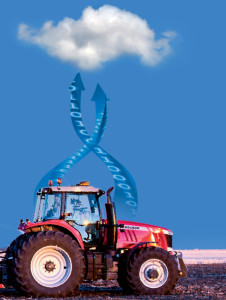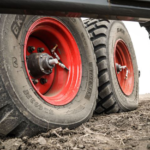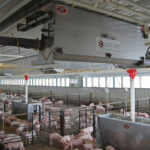When It Comes to Data, It’s Farmer’s Choice
There are two types of data generated by farm equipment: agronomic and machine. Each type details performance of various operations, yet, as with income and an automobile’s fuel efficiency, most of us are less willing to share one as opposed...
When It Comes to Data, It’s Farmer’s Choice
There are two types of data generated by farm equipment: agronomic and machine. Each type details performance of various operations, yet, as with income and an automobile’s fuel efficiency, most of us are less willing to share one as opposed...There are two types of data generated by farm equipment: agronomic and machine. Each type details performance of various operations, yet, as with income and an automobile’s fuel efficiency, most of us are less willing to share one as opposed to the other.
“The actual machine data itself, I don’t have a problem with sharing it,” says Devon Bryant, a farmer and custom harvester from northeast Arkansas, who says he’s a very loyal Massey Ferguson® and Hesston® customer. “I’ll let the manufacturer and dealer see it.” That, he says, will allow his dealership, Cox Implement, to remind him about service and “help the manufacturer … improve their technologies.”
Most farmers, however, feel differently when it comes to their agronomic information. According to results from an American Farm Bureau Federation survey, more than 75% of farmers who responded are concerned that such data could be used by a company or third party for market-sensitive commercial activities.
While Bryant doesn’t have that concern with AGCO—he uses the company’s AgCommand® telemetry and TaskDoc task-management technologies—he can understand why other farmers are more cautious overall. “Let’s say I’m contracted with somebody, and they’re growing a special variety that might be proprietary or it’s one they’re trying to get a patent on. They probably don’t want just anybody to know what their yields are. They could lose the advantage,” that Bryant says comes from years of work and investment.
It’s the Producers’ Data
AGCO has responded to such concerns by offering what the company calls a “two-pipe” approach to dealing with data generated through its equipment. “We treat the agronomic and machine data differently,” says Matt Rushing, vice president, product line for AGCO Advanced Technology Solutions. “The machine data, if the customer chooses, can be shared with AGCO and at the dealership level. That will be used to build better machines, through performance analyses and other measures, and also to improve the performance of the current machine.”
As for agronomic data, says Rushing, AGCO provides “a second pipe to transmit sensitive farm information, such as prescription maps, yield maps, applied data, and planning data.” That information, explains Rushing, “is never stored anywhere besides where the customer chooses to keep the information.
“First and foremost,” he continues, “it’s important to note that AGCO acknowledges that the grower owns all equipment and crop data generated by his or her equipment. It’s the producers’ data to control and share with the partners they choose, which is the main reason why we’re developing an open approach to all of our data-gathering products and services through Fuse Technologies. We believe the producer is the best person to make decisions about their own data, as well as their operations generally.”




